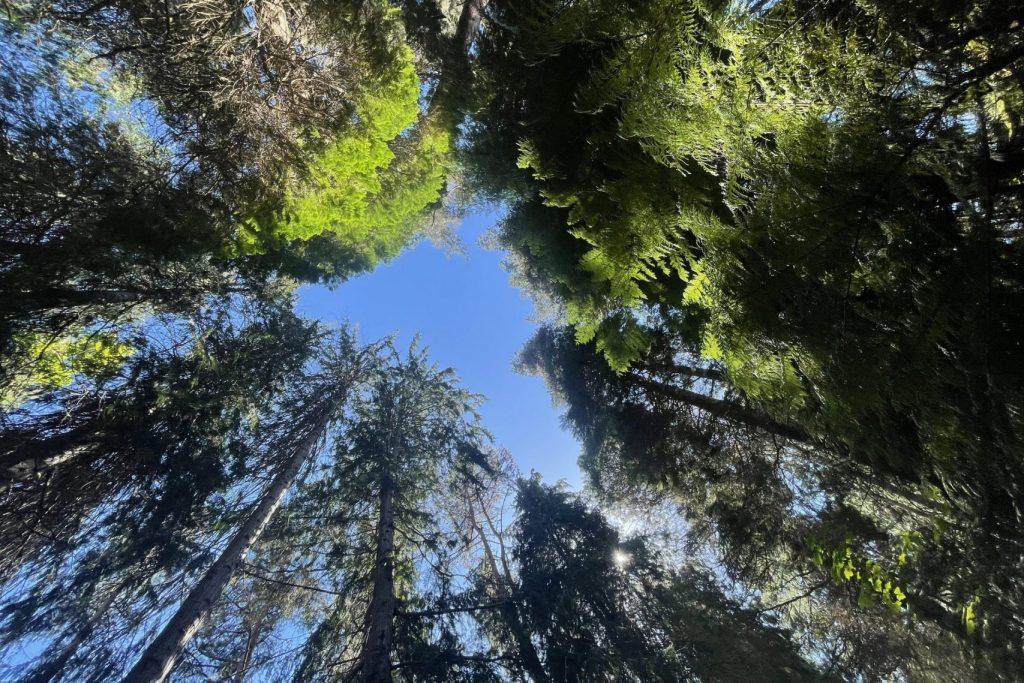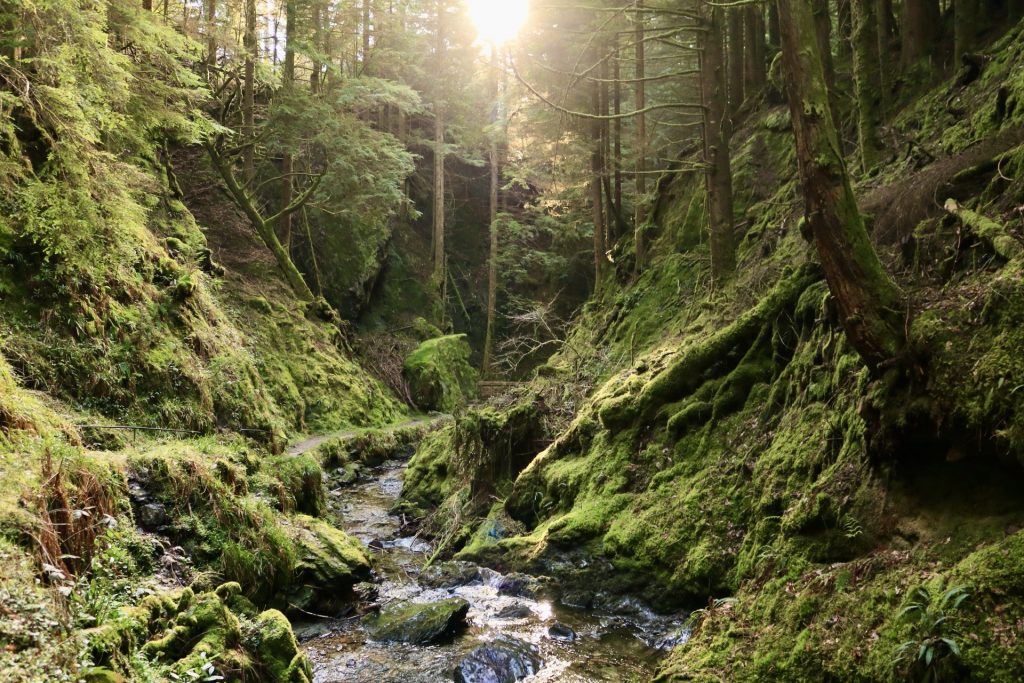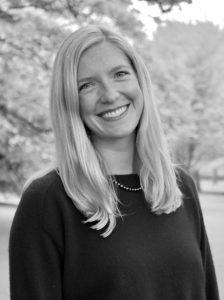The case for an ethos of interconnectedness
Anyone who has spent time outdoors can attest to the restorative power of nature. As someone with a deeply-seeded appreciation for the natural world, I have found my wellbeing profoundly affected by the evolving climate crisis. As seas rise, so does eco-anxiety, climate grief, climate doom, eco-despair, and a host of mental health challenges that psychologists are scrambling to name and diagnose. I believe eco-therapy and the Japanese practice known as shinrin yoku or forest bathing have an important role to play in reconnecting us to the world we hope to save.
Growing up in rural Colorado, I have always taken refuge in the mountains. After an argument with my mom or a teenage heartbreak, the mountains were my escape. Every morning, I ran the dusty public access trails behind our house, dodging prickly pear cactuses and stopping to crush and sniff a handful of sage brush. I ski raced, backpacked, camped, rafted whitewater. I conquered the tallest peak in the continental United States. My passion for outdoor sports took me to incredible places, and I found strength and empowerment in the knowledge that I could summit a peak or maneuver a particularly technical section of river.
But things at home are changing. Every year, fires ravage the mountains of my youth. Smoke chokes the lungs of trail runners, mountain bikers, and wildlife alike. The Colorado River runs dry before it reaches the Pacific because, God forbid, the faucets in cities like Las Vegas or Los Angeles cease to gush clear, cool, life-giving water. As a researcher studying sustainable agriculture in the Global South, facing off daily with issues of erosion and malnutrition, pollution and mass extinction takes a further toll. The greater our proximity, physical and intellectual, the more difficult the denial of climate change becomes.
Last year, a landmark study by the Lancet confirmed a widespread, climate-related mental health crisis among today’s youth (Hickman et al, 2021). Of over 10,000 respondents across 10 countries, nearly half reported that feelings of sadness, anxiety, anger, powerlessness, and guilt negatively impacted their day-to-day functioning. Approximately 75% reported feeling profoundly afraid of the future. Crippling eco-anxiety is a disturbing reality for today’s youth and presents a serious obstacle to the development of potential climate solutions. Now more than ever, climate hope is an existential imperative.
In a sweeping review of modern treatments for eco-anxiety and other forms of climate-related distress, Bauden and Jachens (2021) found connecting with nature to be a key theme across treatment plans. Interventions emphasized the importance of “reawakening our sense of interconnection with the natural world through mindful contact with nonhuman nature, reflective rituals, and other eco-therapeutic techniques” (Koger, 2015). When we feel isolated and disconnected from the world around us, our field of vision and thus our sense of possibility narrows. As indigenous leaders have trumpeted for generations, reawakening a sense of belonging to the Earth has transformative healing potential.


Reconnection to and reverence for the natural world is a driving principle of shinrin yoku, or forest bathing. Coined in the 1980s by Japanese researcher Yoshifumi Miyazai, it is loosely defined as “a set of practices aimed at achieving ‘preventive medical effects’ through exposure to natural stimuli that render a state of physiological relaxation and boost the weakened immune functions to prevent diseases” (Song et al, 2016). The practice was developed in response to Japan’s post-war industrial boom, when mass-urbanization led to a public health crisis among nature-deprived city dwellers. Over thirty years of medical research now supports the therapeutic effects of forest immersion in treating everything from depression, anxiety, and insomnia to cancer, high blood pressure, and diabetes (Wen et al, 2019).
In June, I completed my certification as a shinrin yoku practitioner and subsequently entered the praxis phase of my training where I will lead small groups and 1:1 forest bathing excursions with students and researchers at risk of climate-related distress. Shinrin yoku is a keystone practice in the larger field of eco-therapy, and already, I’ve found the etymology of eco-therapy helpful in explaining the practice to my clients. In both Latin and Greek, the prefix eco means home or community, while therapia alludes to a process of healing or taking care of. Despite their variability, the common thread uniting eco-therapy techniques is healing our relationship to our primordial home. The goal is to reawaken and reconnect humans to the larger web of life of which we are an integral part.
Shinrin yoku is grounded in Shintoism, the ethnic religion of Japan, which asserts the existence of a universal spirit that inhabits all beings. Humans, animals, oceans, and mountains are equally composed of the same sacred essence. This idea that we are all made up of the same ‘stuff’, some cosmic source material, is reflected in modern atomic theory and the principles of quantum physics. Growing understanding of the interconnectedness of subatomic particles supports what animistic religions like Shintoism have known for centuries: that humans exist in intimate, reciprocal relationship to the natural world.
An ethos of interconnectedness represents an alternative to the dualistic and anthropocentric separation of humans and nature. We are not, and never have been, separate from any of these entities. Recognizing our profound interdependence acts as a balm for our insatiable need to dominate and exploit. The notion that we could ‘conquer’ a mountain or ‘own’ a river becomes absurd, for why would we seek to own something to which we already belong? Forest immersion therapy is one way to tap into that sense of belonging, to practice living in relationship ‘with’ nature, rather than conquerors ‘of’ nature.
Nowadays, nature is still a precious refuge for me. But my interactions with my surroundings have shifted in tone. You’ll still find me climbing mountains and dragging my paddleboard out to Scotland’s most remote beaches. But once I’m on the water, any agenda seems suddenly irrelevant. My hiking excursions are decidedly softer, slower, more meandering. I may not be ticking off as many impressive peaks, but I notice so much more. The journey is no longer linear. Instead of point A to point B, I’m bouncing between C, M, Q, and T… circling back, again and again. It feels more like reverence than conquest.
Turns out we miss a lot when we skim over well-worn paths, racing to the top of yet another mountain simply to snap a photo and race back down. Along the way, maybe a cool breeze reminds us to pause. We might revel in the tingle of warm sunshine, or find a delicious moment of reprieve in the shade of a pine tree.
Shinrin yoku is about elongating those moments. In the absence of an agenda or destination, we are free to get lost. When we notice more, presence deepens. We reawaken to the small miracle of ants shepherding their fallen comrades back to the colony, to the glass-like fragility of a dragonfly wing, or the fractal-like branches of lichen spreading across a rock face. Suddenly, that looming deadline or irksome comment from a supervisor feels a little less urgent. Something tight begins to loosen.
In a society eternally preoccupied with what comes next, we are slowing down and making space for the present. Hope needs space to breath. Climate hope, then, is not blindness to the precarity of our future. Rather it is insistence that we not let the uncertainty of our future rob us of the beauty of the present. And how better to revel in the beauty of the present than some quality time in the great outdoors?
Tags
About the author

